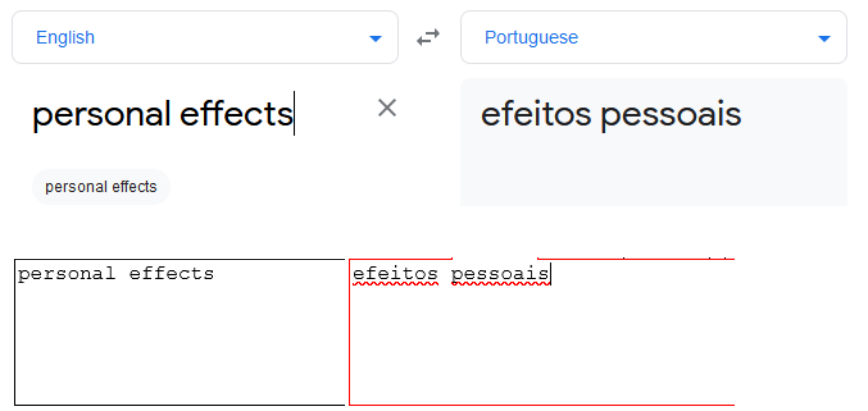Beware of
'Ad Pedem Litterae'

The Latin expression 'ad pedem litterae' literally means 'to the foot of the letter', which is closest in meaning to the English expression 'to the letter' or 'exactly as it is written'. So what does to the foot of the letter mean to a translator?
It means to translate word for word, letter by letter. Is it wrong to translate word for word?
No, not always! In some situations, this type of translation is just fine; it even makes sense to do so. For instance, when you don't have to pay attention to contextual issues or the figurative use of terms and expressions or, above all, consider the meaning of the whole.
Let’s take a look at this example sentence in Portuguese using a typical SUBJECT-VERB-OBJECT structure:
O LIVRO ESTÁ SOBRE A MESA
This sentence lends itself perfectly to being translated literally, that is, ad pedem litterae, as there's no other way to translate it than by using the equivalent terms in English.
o = the
livro = book
está = is
sobre = on
a = the
mesa = table
O livro está sobre a mesa = The book is on the table
That said, a word-for-word translation works wonderfully well in some cases. The problem is when we come across complex constructions or idioms with a figurative meaning − that's where the danger lies.
What are the effects of a 'word-for-word' translation when it's done carelessly or irresponsibly?
A translation characterized by a word-for-word reproduction – a strict translation exactly as written – can be costly, as the reader of your translated text may not understand it and this could have a devastating effect on your reputation as a professional translator.
Let me show you what I mean using this English expression:
PERSONAL EFFECTS
Both words are very common in English, but taken together, they mean something that has nothing to do with their Portuguese equivalents, namely "PERSONAL" and "EFFECTS". In cases like this, either you already know the expression and its exact equivalent in Portuguese or you turn to a reliable source that will give you the correct answer.
What you can't do is translate it as "EFEITOS PESSOAIS". Such a careless or irresponsible translation could be catastrophic!
Electronic dictionaries and other websites give you the following translations:

Now see what you get when you look up 'PERSONAL EFFECTS' in AVRO dx.

Personal effects (omq [someone's] personal property): Bens de uso pessoal | coisas de uso pessoal | objetos de uso pessoal | objetos pessoais | pertences.
See the difference between a pseudotranslation and an authentic, reliable translation?
That's the kind of translation you can count on when you use AVRO dx!
AVRO dx is a comprehensive (English-Portuguese-English) reliable database containing over 250,000 primary entries, thousands of technical terms from all segments, over 3,700 pictures, plus helpful example sentences and explanations.s
Watch the video below to learn more about AVRO dx and what it can do to help you and your career!